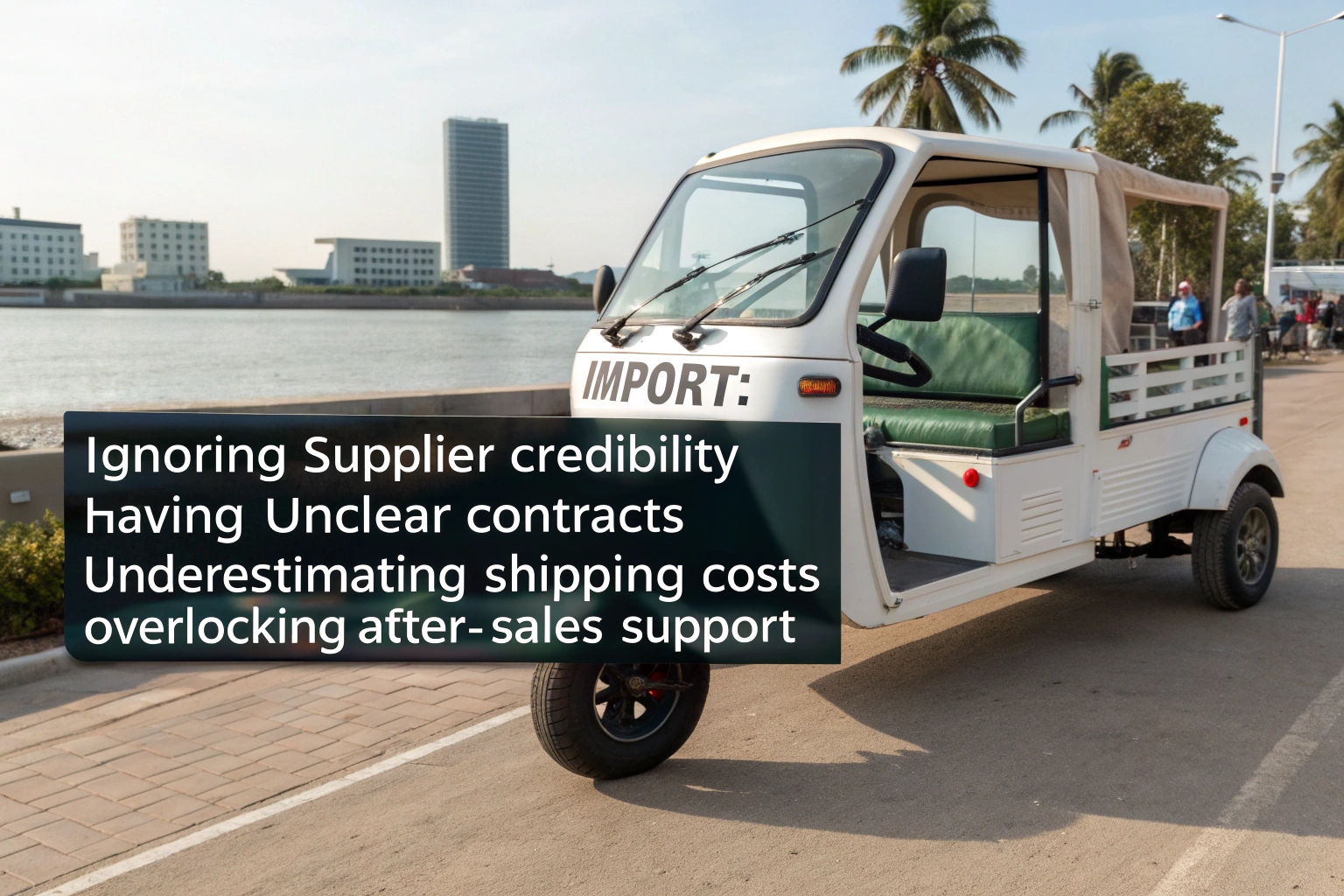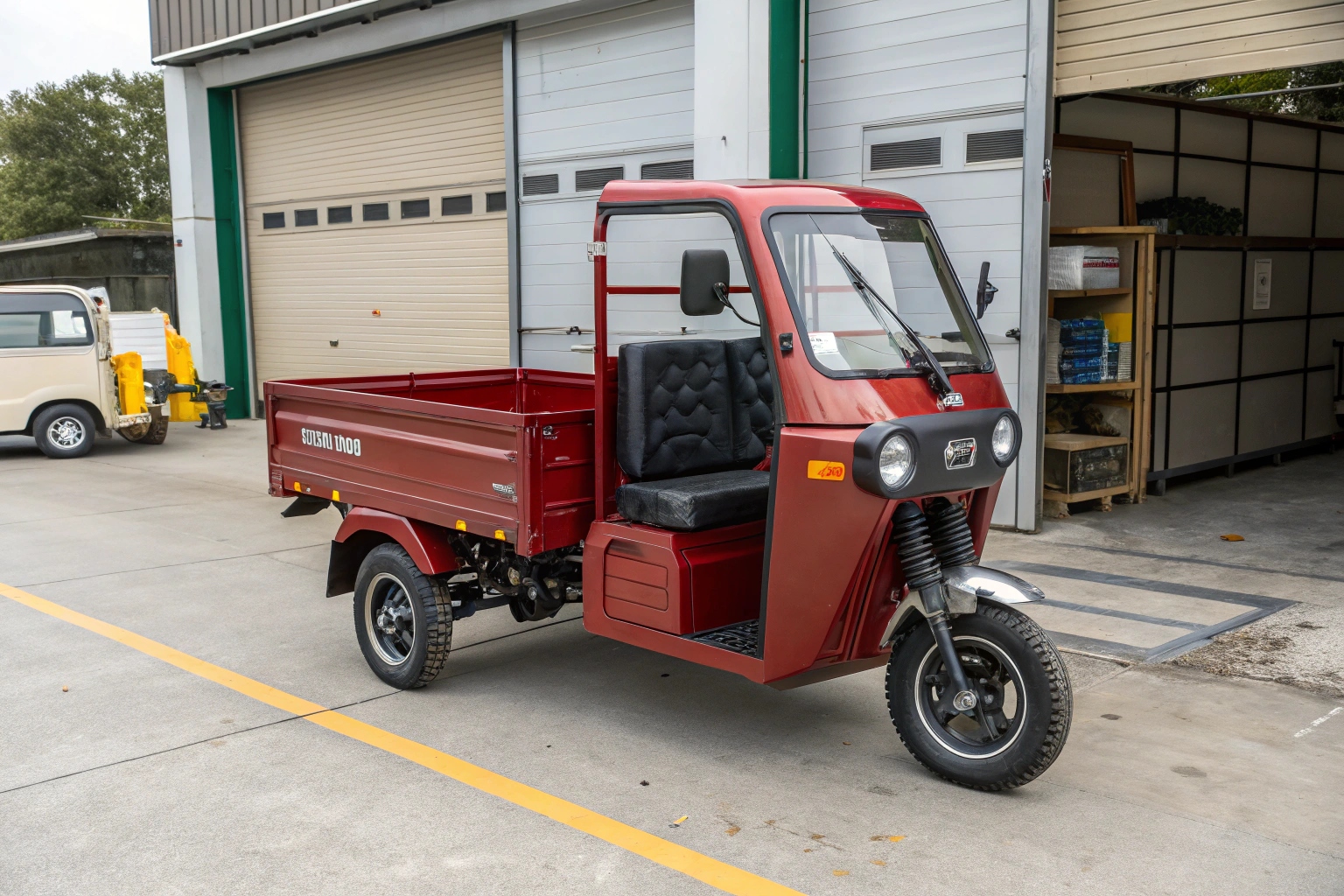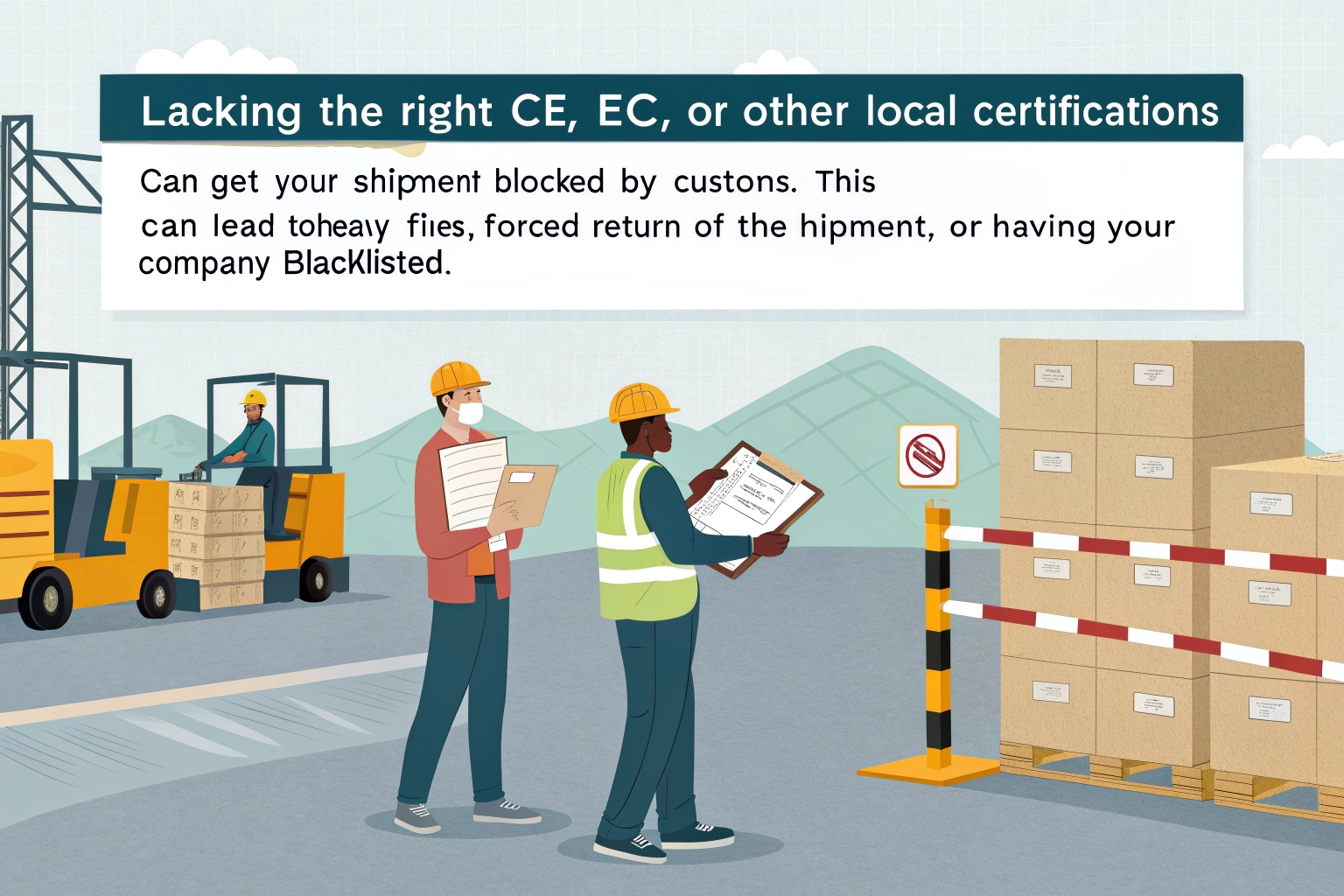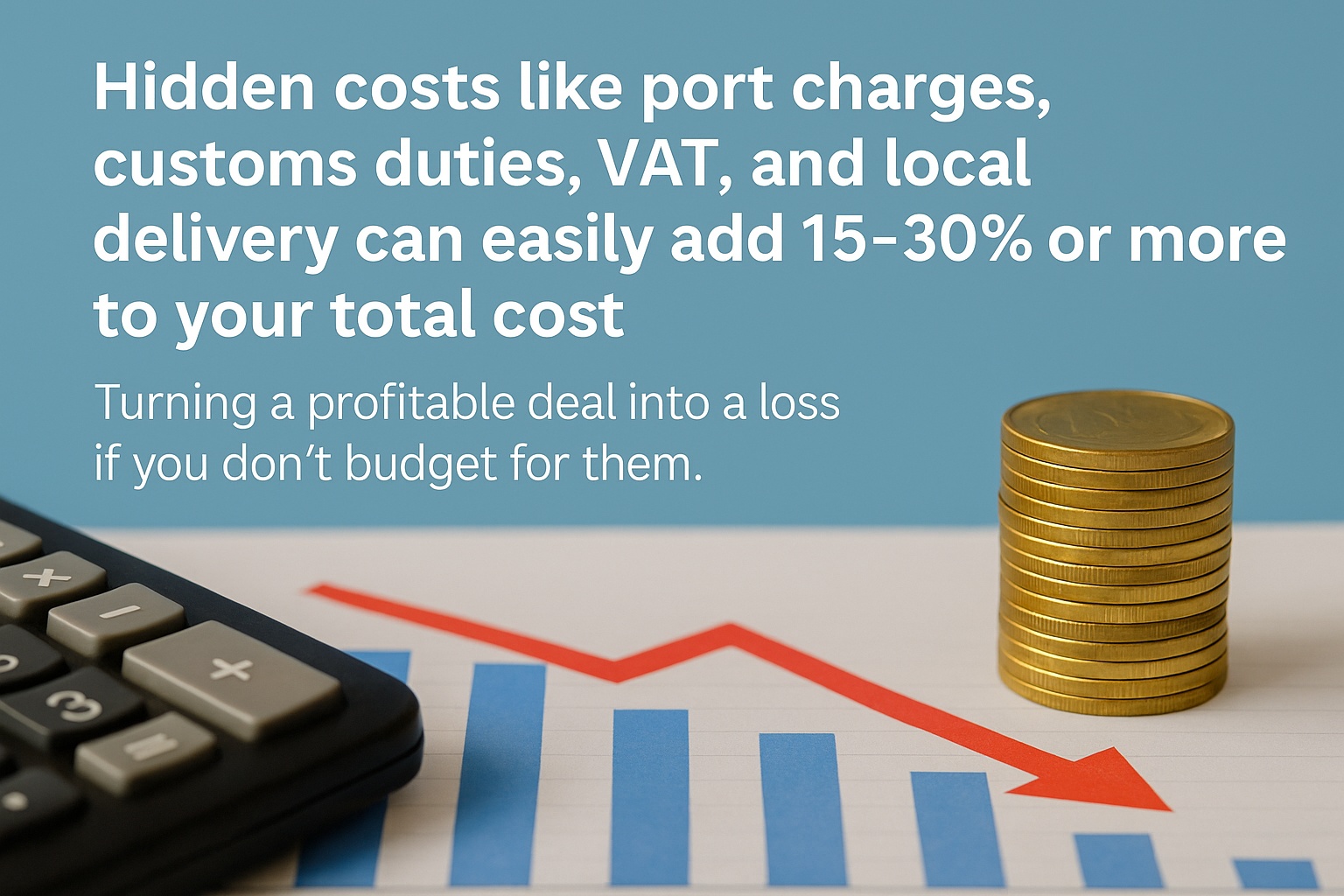Found a great price on an electric three-wheeler from China? An exciting deal can quickly turn into a costly nightmare if you're not careful. The biggest mistakes often happen long before the container is even shipped.
The most common 3 wheeler import pitfalls include choosing the wrong supplier, having unclear product specs, ignoring certifications, and underestimating hidden costs. These mistakes can lead to getting the wrong product, having your shipment seized by customs, or paying far more than you budgeted.

From my factory, I see buyers make the same mistakes over and over. They get caught up in the excitement of a low FOB price and forget that a successful import deal is about much more than that. It's about clear communication, detailed planning, and choosing a partner you can trust. I've written this guide to share the hard lessons I've learned from countless real deals, so you can avoid these traps and make your import business a success.
What are the most common mistakes buyers make when importing electric three-wheelers from China?
Tempted by a rock-bottom price from an unknown supplier? Focusing only on the initial cost is the fastest way to lose money in this business. The cheapest offer is often the most expensive one in the long run.
Common mistakes include ignoring supplier credibility, having unclear contracts, underestimating shipping costs, and overlooking after-sales support. These can lead to quality issues, surprise fees, and having vehicles you can't get parts for.

From my position as a manufacturer, I've observed that the most successful import deals are built on a foundation of clear planning, not just a hunt for the lowest price. A strategic approach prevents costly errors and builds a stronger business for the long term. Based on hundreds of transactions, the most critical oversights usually fall into three main areas.
-
Prioritizing a True Partnership Over a Price Tag: Your supplier is more than just a vendor; they are your manufacturing partner. While a professional website is a good start, true credibility lies in their production quality. The real value is in the details you can't see online—the grade of steel in the frame, the quality of the wiring, and the precision of the assembly. A great partner will be transparent. We encourage buyers to request a video tour of the factory, ask for references, or visit in person. This step helps identify a reliable partner committed to quality, not just a trader focused on a single transaction.
-
Planning for Long-Term Success with After-Sales Support: The purchase itself is just the beginning of your business journey. A crucial question to ask is: What is the plan for maintenance and repairs six months down the line? We often receive emails from business owners looking for spare parts for trikes they bought elsewhere, only to find that our components are not compatible. To protect your investment and your brand's reputation, make after-sales support a key part of your negotiation. Before signing any contract, clarify the warranty policy and ensure a plan is in place for a reliable supply of essential spare parts.
-
Building a Clear Import Blueprint: A successful import journey starts with a map. Before requesting detailed quotes, having clear answers to a few key questions will save significant time and resources. For example: Are you certain these vehicles can be legally imported and registered in your country? Have you identified a reliable customs broker? What specific features and performance levels does your local market demand? A professional supplier will see your preparation as a sign of a serious partner and will work with you to refine these details. In fact, a good way to evaluate a manufacturer is to see if they ask you these clarifying questions. A focus on mutual understanding is the hallmark of a healthy business relationship.
How can unclear product specifications ruin your electric three-wheeler order?
You sent a supplier a photo of a trike and got a great price. But what are you really getting? A picture is not a technical specification, and this is the most common path to a terrible surprise.
Vague specifications often lead to receiving the wrong configuration, a smaller battery than you expected, or a vehicle that isn't street-legal, forcing you to spend more money to fix it or sell it at a loss.

I had a client come to me once with a quote from a competitor. He showed me a picture of an electric cargo tuk and said, "This price is much lower than yours." I asked him to check the detailed specs. It turned out the cheaper version had a battery with half the capacity, no hydraulic dump bed, a smaller frame, and a much weaker motor. It looked the same in the small picture, but it was a completely different, lower-quality vehicle. Sometimes buyers ask for impossible combinations, like a 600 kg load capacity with a tiny 3000W motor. A good factory will tell you that won't work. A bad factory will just take your money.
| Vague Specification | The Unfortunate Result |
|---|---|
| "A big battery" | You get a 45Ah battery, but you needed a 100Ah for a full day's range. |
| "A strong motor" | You get a standard motor, not the high-torque version needed for hills. |
| "Like the picture" | You get the basic model, without the dump bed or roof you assumed was included. |
| "Standard model" | The vehicle arrives without the specific turn signals required in your country. |
Why is it risky to ignore certification and compliance requirements?
Your container full of electric trikes has landed at the port. But customs won't release it. Now your entire investment is stuck in limbo, all because of a missing piece of paper.
Lacking the right CE, EEC, or other local certifications can get your shipment blocked by customs. This can lead to heavy fines, forced return of the shipment, or having your company blacklisted.

This is not a step you can skip. Every country has its own rules, and "I didn't know" is not an excuse customs will accept. A professional manufacturer should be your partner in this. We know the general requirements for major regions and can provide the necessary documentation like the CE certificate or Manufacturer's Certificate of Origin (MCO). But it is your responsibility as the importer to confirm exactly what is needed for your specific country. Don't rely on a supplier who says, "Don't worry about it." You must worry about it.
Here are some of the key certifications to be aware of:
- Europe: CE marking is mandatory for most products, and EEC (or EUV) type-approval is often required for vehicles to be registered for road use.
- North America: Compliance with DOT (Department of Transportation) and EPA (Environmental Protection Agency) standards is necessary.
- Latin America / Africa / Asia: Requirements vary greatly. Often, a combination of a supplier's ISO9001 quality certificate and specific local vehicle standards is needed.
How do hidden costs inflate the total price of importing three-wheelers?
The FOB (Free On Board) price for the trikes looked fantastic. But now you're getting bills for shipping, insurance, port fees, taxes, and inland transport that you never planned for.
Hidden costs like port charges, customs duties, VAT, and local delivery can easily add 15–30% or more to your total cost, turning a profitable deal into a loss if you don't budget for them.

The FOB price is just the cost of the vehicle delivered to the port in China. It is not the final price you will pay. To understand your true profit margin, you must calculate the Landed Cost. This is the total cost to get the product from the factory floor to your warehouse door. A transparent supplier will help you understand these costs. We always encourage our clients to work with a good freight forwarder or customs broker to get a full estimate before they place an order.
| Cost Component | Description |
|---|---|
| FOB Price | This is your starting point. The cost of the goods at the Chinese port. |
| + Ocean Freight & Insurance | Cost to ship the container to your country's port (This makes it CIF). |
| + Port Fees & Handling | Fees charged at your local port to unload and process the container. |
| + Customs Duties & Taxes | Tariffs and VAT charged by your government. This can be a major cost. |
| + Local Transport | Cost to transport the container from the port to your warehouse. |
| = True Landed Cost | This is the number you should use for your profit calculation. |
Conclusion
Avoiding these import pitfalls comes down to due diligence. Be clear on your specs, vet your supplier, understand all costs, and you can build a profitable, long-term business.

